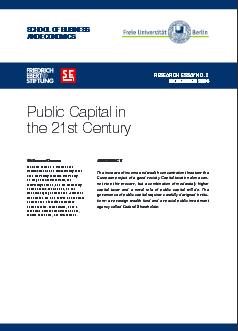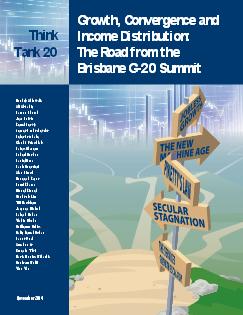Kenneth, T. (2014) “The German euro is overvalued“, US/ Global Economics, Angry Bear Blog, 02 December. I keep telling people that the German euro is undervalued, but some folks seem not to believe me. (See the comments section from this post last year for an example.) But this is a really big deal. The dominant narrative about the eurozone crisis is that fiscally irresponsible countries like Greece were bringing …Read More
Germany and the European Commission’s €315 Billion Infrastructure “New Deal” is Yet More Smoke and Mirrors
Smith, Y. (2014) “Germany and the European Commission’s €315 Billion Infrastructure “New Deal” is Yet More Smoke and Mirrors“, Naked Capitalism Blog, 26 November. I have to confess I had not taken the announcement of a €315 billion infrastructure spending program by the European Commission all that seriously, despite the fact that this on the surface represented a very serious departure from the Troika’s antipathy for anything resembling fiscal …Read More
Vicious circle(s) 2.0 – while trying to sever the sovereign-banking link, we may be disregarding vulnerabilities from banks’ mutual interconnectedness
Merler, S. (2014) “Vicious circle(s) 2.0 – while trying to sever the sovereign-banking link, we may be disregarding vulnerabilities from banks’ mutual interconnectedness“, Bruegel Institute, 20 November. Since the beginning of the crisis – and more so since 2010 – Europeans have been looking at the sovereign-banking “vicious circle”, tying the dismal fates of States and banks together. This has emerged as a characteristic disease during the euro crisis, …Read More
Benchmarking the European Central Bank’s asset quality review and stress test: A tale of two leverage ratios
Acharya, V. & Steffen, S. (2014) “Benchmarking the European Central Bank’s asset quality review and stress test: A tale of two leverage ratios“, VoxEU Organisation, 21 November. The ECB estimated that Eurozone banks would face a capital shortfall of €25 billion in a severe crisis. Earlier work by the authors estimated the shortfall to be 30 times higher. This column argues that this striking divergence can be explained by …Read More
The Eurozone’s QE Problem
Durden, T. (2014) “The Eurozone’s QE Problem“, ΘZeroHedge, 19 November. Over the last couple of weeks, as the Federal Reserve ended their latest round of quantitative easing, there have been many calls that the pickup of the “QE Baton” by the BOJ and ECB. The problem is that the impact of liquidity interventions in Japan and the Eurozone do not carry the same “punch” as was witnessed in the …Read More
Public Capital in the 21st Century
Corneo, G. (2014) “Public Capital in the 21st Century“, Friedrich Ebert Stiftung, Freie Uni Berlin & Social Europe Journal, Research Essay No.2, November. The increase of income and wealth concentration threatens the European project of a good society. Capital taxation alone cannot stop this process, but a combination of moderately higher capital taxes and a novel role of public capital will do. The governance of public capital requires carefully …Read More
Quantitative Easing and Deflation in a Creditor Economy
Daniel Gros: “Quantitative Easing and Deflation in a Creditor Economy, στο Growth, Convergence and Income Distribution: The Road from the Brisbane G-20 Summit, pp. 87-91, Think Tank 20: November 2014. On November 15-16th, world leaders gathered in Brisbane, Australia for the ninth G-20 summit, aimed at increasing world GDP and charting a pathway to sustainable, inclusive growth and resilience through both short and medium-term actions. Experts from think tanks …Read More
Is there (sustainable) growth in Greece?
Bastian, J. (2014) “Is there (sustainable) growth in Greece?“, MacroPolis: Greece in Perspective, 19 November. Greece finally exited its six-year long recession in the third quarter of 2014. The Hellenic Statistical Authority ELSTAT said that the economy grew by 0.7 percent in the third quarter (compared to the same quarter in 2013). The positive third quarter reading is the first after 24 consecutive quarters of negative GDP performance dating …Read More
Growth, inequality, and social welfare: Cross-country evidence
Dollar, D., Kleineberg, T. & Kraay, A. (2014) “Growth, inequality, and social welfare: Cross-country evidence“, VoxEU Organisation, 19 November. Concerns about inequality are at the forefront of many policy debates. While inequality has increased in many countries over the past few decades, in others it has decreased. This column uses data from 117 countries over the past four decades to investigate the importance of such changes in inequality, as …Read More
The 2014 EU-wide bank stress test lacks credibility
Goldstein, M. (2014) “The 2014 EU-wide bank stress test lacks credibility“, VoxEU Organisation, 18 November. Results from last month’s EU-wide stress test are reassuring, especially for countries at Europe’s core. This column warns against a rosy interpretation. The test relies on risk-weighted measures of bank capital ratios that have been shown to be less predictive of bank failure than unweighted leverage ratios – a metric already adopted by the …Read More






